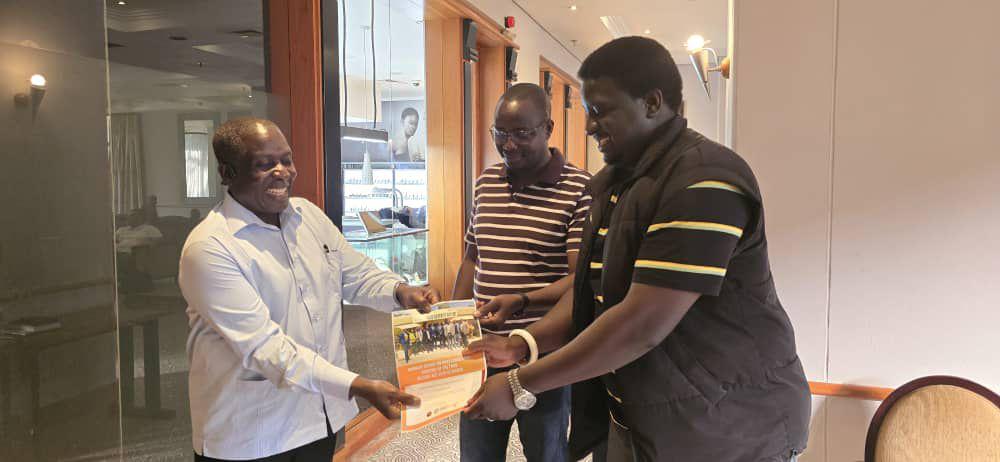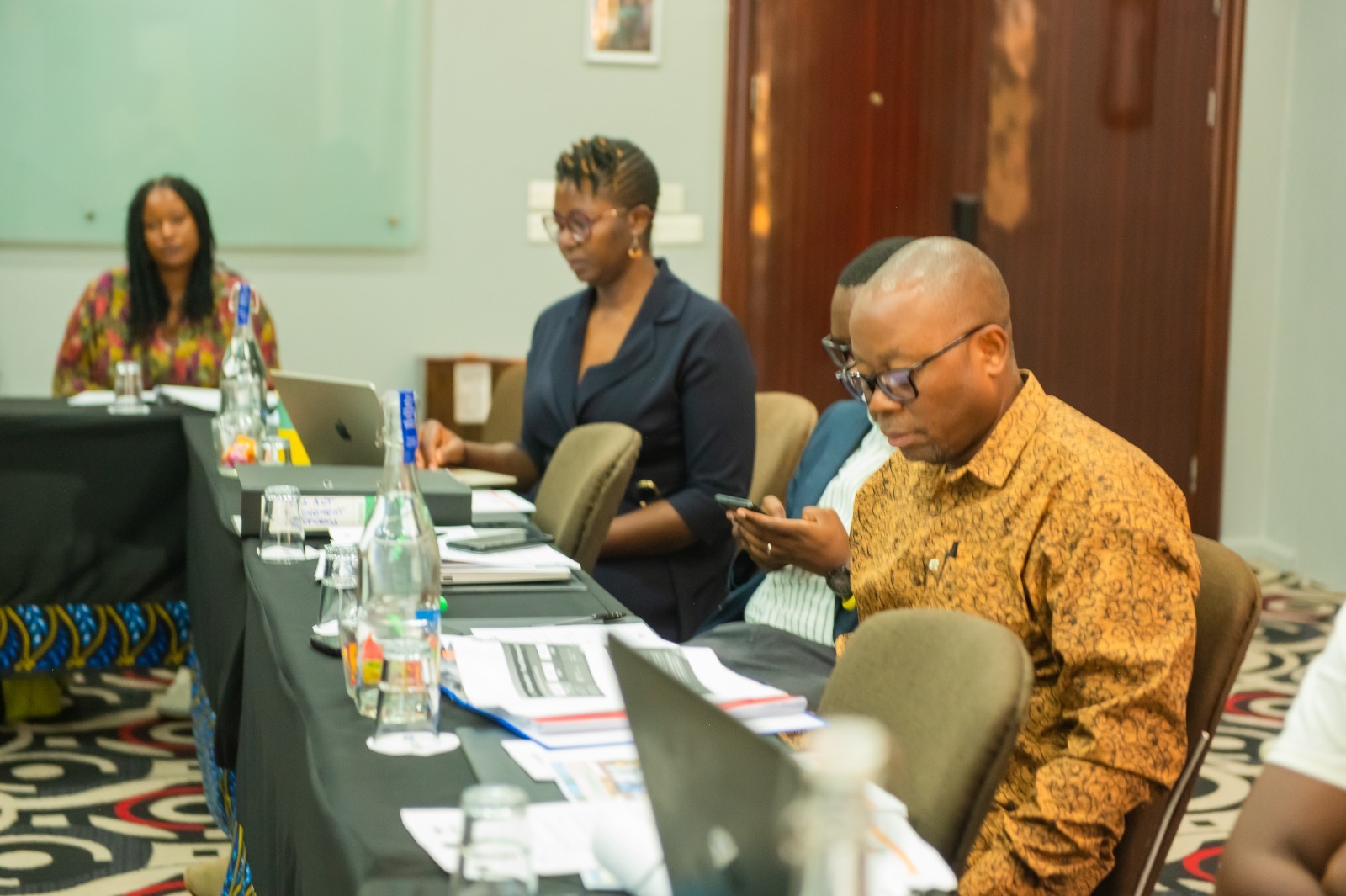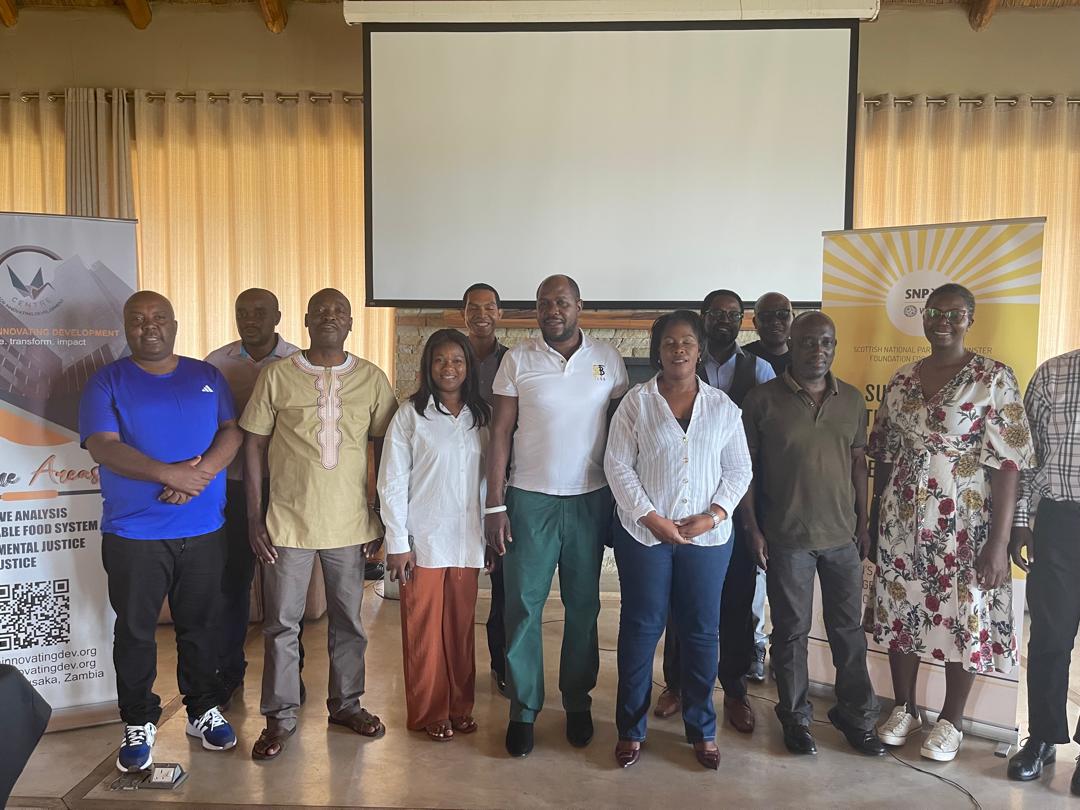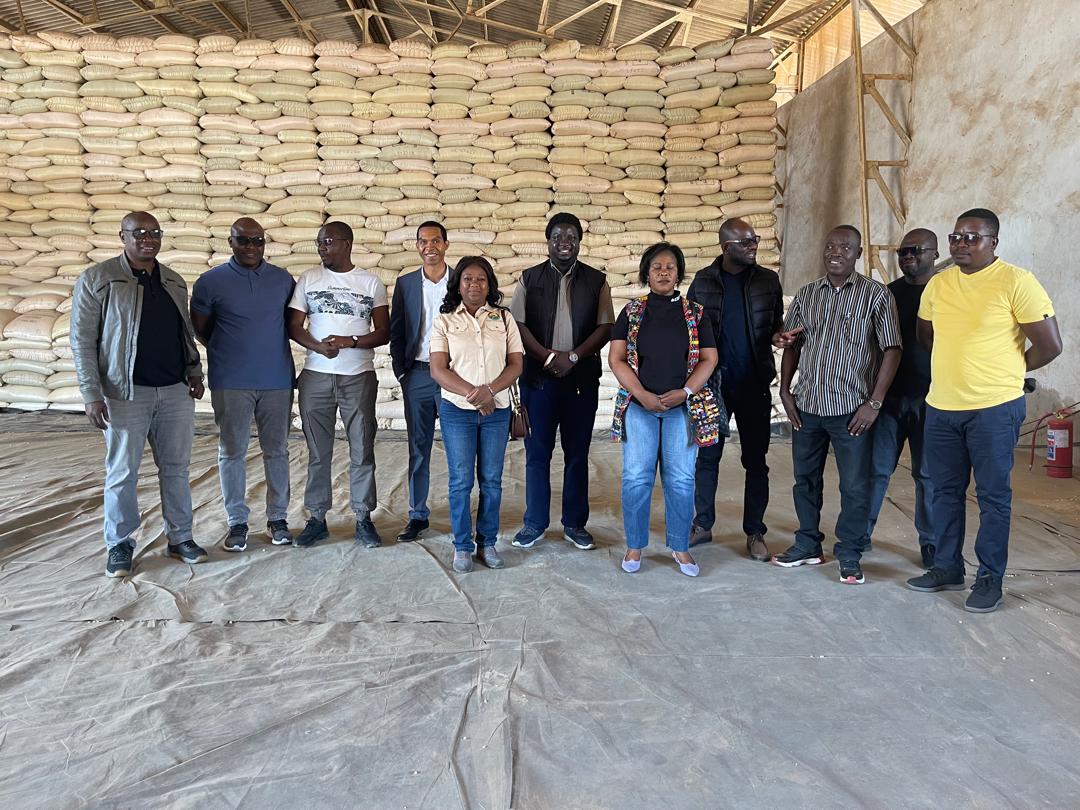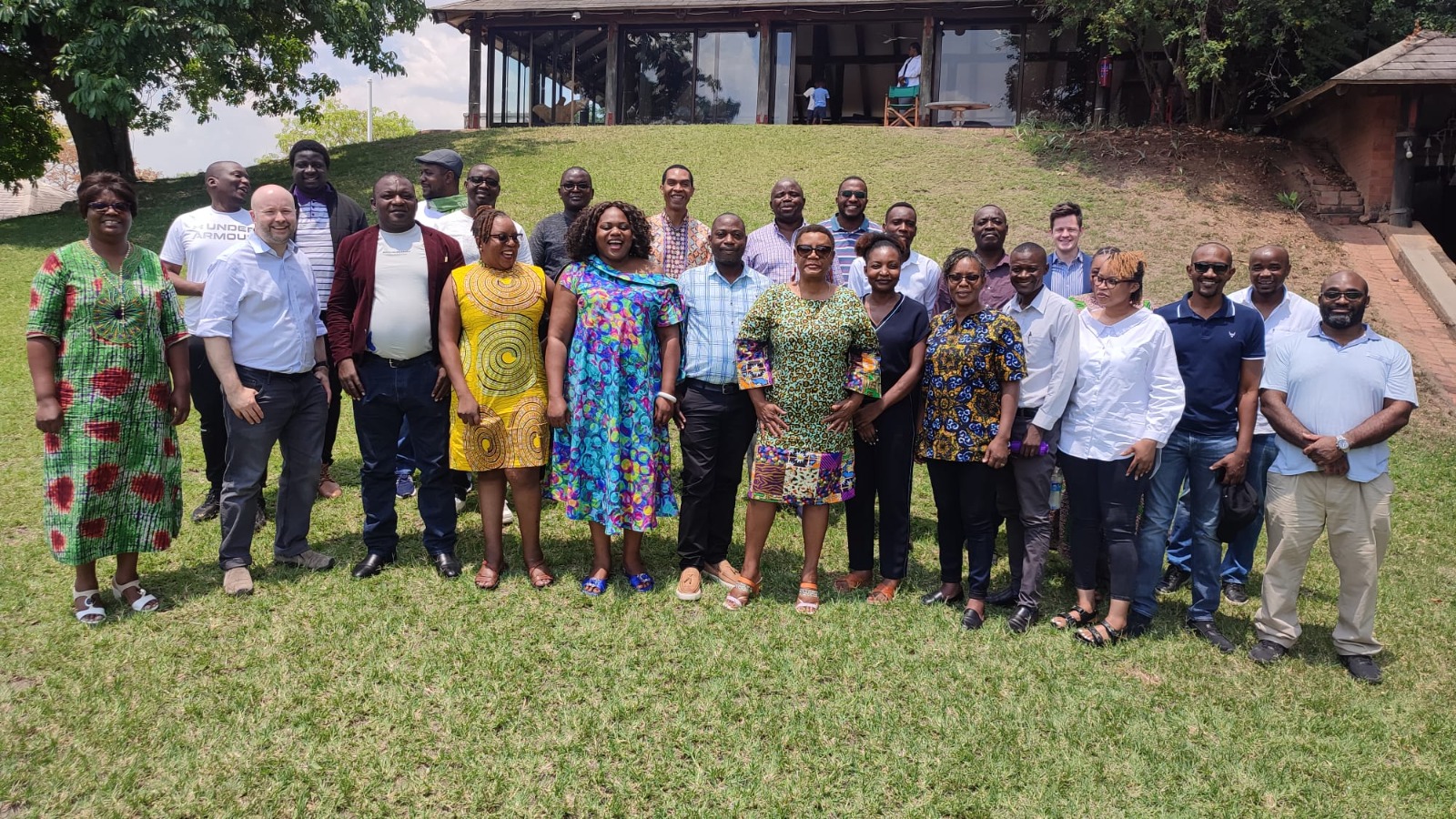On July 6, 2024, a delegation from Zambia's parliamentary caucus, supported by the Centre for Innovating Development (CIDE), visited the Chongwe Main Depot of the Food Reserve Agency (FRA) as part of an ongoing Post-Legislative Scrutiny (PLS) study aimed at improving food security through effective policy and operational reviews. The delegation included Hon. Binwell Mpundu, Hon. Imanga Wamunyima, Hon. Jacqueline Sabao, Hon. Anthony Kasandwe, Hon. Twaambo Mutinta, and Hon. Melesiana Phri, as well as representatives from CIDE including William Chilufya, Kryticous Nshindano, Mukuka Kalamba, and Stanley Banda.
The delegation was welcomed by Mr. Lundu Sichala, the Lusaka Region Marketing Coordinator, who, alongside other FRA officials, outlined the challenges and operations managed by the Chongwe Depot. The team explored various aspects of the agency’s mandate, including maize storage, distribution, and procurement practices.
A pressing issue discussed was the trend among small-scale farmers selling all their produce instead of just the surplus, leading to potential food insecurity at the household level. Mr. Sichala also described improvements since 2011, when poor grain management led to a significant 20% loss of maize stocks. To combat such losses, FRA has since increased staffing for better grain management and reduction of wastage.
Another concern highlighted was competition from private buyers who often pay more than FRA, with prices of K8,000 to K8,500 per tonne compared to FRA’s K6,600. Despite this, farmers continue to sell to FRA due to the agency’s consistent payment practices and established trust. The group also addressed climate-related impacts, with Mr. Sichala revealing that this year’s drought drastically reduced the agency’s maize procurement from 16,000 metric tonnes in previous years to only 600 bags (about 30 tonnes).
The caucus was guided through the depot, where they observed quality control protocols and maize storage methods. The tour underscored several operational limitations, such as inadequate storage facilities in districts like Rufunsa, which leads to increased transportation costs. Additionally, the limited capacity at Chongwe’s depot—only 1,500 metric tonnes against a production potential of 14,000 metric tonnes—places further strain on the FRA's resources.
Following the visit, the caucus proposed strategic improvements to strengthen Zambia’s food reserve system. Key recommendations included enhancing storage infrastructure, building additional depots to reduce transport costs, and granting FRA more autonomy to make independent business decisions while remaining under the Ministry of Agriculture. They also emphasized the need for establishing an annual maize consumption rate to distinguish between production and consumption, ensuring strategic reserves meet national food security needs.
The visit concluded with calls for expanded support and training for cooperatives and farmers in maize drying and storage techniques, reinforcing the caucus’s commitment to effective food security policy.
CIDE Management
July 6, 2024. Chongwe

